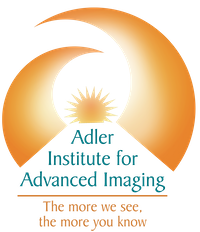Adler Imaging has been performing amyloid imaging in patients since 2007 and are currently accepting referrals of patients living with MCI or suspected Alzheimer’s Disease.



Use of PET/CT in Brain Disorders
PET/CT is used to perform scans of the brain which provide information for assessing a number of neurological diseases including Alzheimer’s Disease, Parkinson’s Disease, Huntington’s Disease, and dementias. A PET/CT scan of the brain involves a radiopharmaceutical called FDG, a glucose derivative, that helps to create a normal versus abnormal map of brain functionality. Glucose is the main source of energy in the brain. Mapping distinctive patterns of glucose metabolism assists physicians in accurately diagnosing patients and treating them appropriately.
PET/CT scans are also used in cases of epilepsy, to help localize the seizure focus in patients with seizure disorders, and in stroke, to evaluate the extent of stroke damage and to monitor recovery following therapy.

